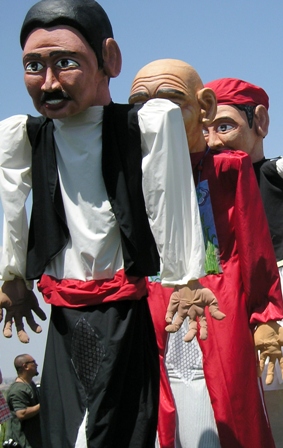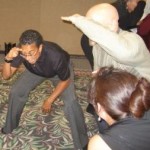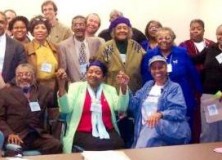Many people are probably doing popular education without knowing it. The name is really secondary. If the process is participatory, critical, and supports people in organizing to change their situation, it’s popular education.
Eduardo Baez
(in To Change This House: Popular Education
Under the Sandinistas, Deborah Barndt
(Toronto: Between the Lines) p.16.)
 Popular education is a participatory approach to education. Since many disparities emerge through an underprivileged community’s lack of knowledge regarding the critical components of their individual lives within the larger context of society, this methodology gives these communities access to tools of knowledge in the service of social transformation.
Popular education is a participatory approach to education. Since many disparities emerge through an underprivileged community’s lack of knowledge regarding the critical components of their individual lives within the larger context of society, this methodology gives these communities access to tools of knowledge in the service of social transformation.
Traditional education methods, including those most of us experience in schools and colleges, delegate learners to the role of passive recipient of information. Instead, popular education teachers act as facilitators, encouraging the development of leadership and self-direction in the group while ensuring that learning takes place. The educator’s expertise ensures that the group’s exploration of the issues fits in the larger social, historical, and political context, by providing direction and “facts and figures” as needed.
The SCRC brand of participatory methods grows out of the wisdom and tradition of popular education, and Freire’s recognition that education is “a political act” both as an act of knowing and of creating/redefining meaning.
The popular education process includes the following components:
- leadership is shared
- the community of learners identifies the subject of study
- the community’s experiences and concerns launch the study
- the intersection of teachers’ expertise and learners’ contributions creates new knowledge
- the participants broaden local perspectives to embrace larger global realities
- the process creates collective action for change
 We’re interested in hearing from those of you who want to add to the discussion on cross-fertilization of popular education and participatory research, and/or the uses and methods for knowledge creation to empower communities and working people, and/or discussion of the learning/teaching moment that is at the heart of useful and useable knowledge.
We’re interested in hearing from those of you who want to add to the discussion on cross-fertilization of popular education and participatory research, and/or the uses and methods for knowledge creation to empower communities and working people, and/or discussion of the learning/teaching moment that is at the heart of useful and useable knowledge.
Resources:

